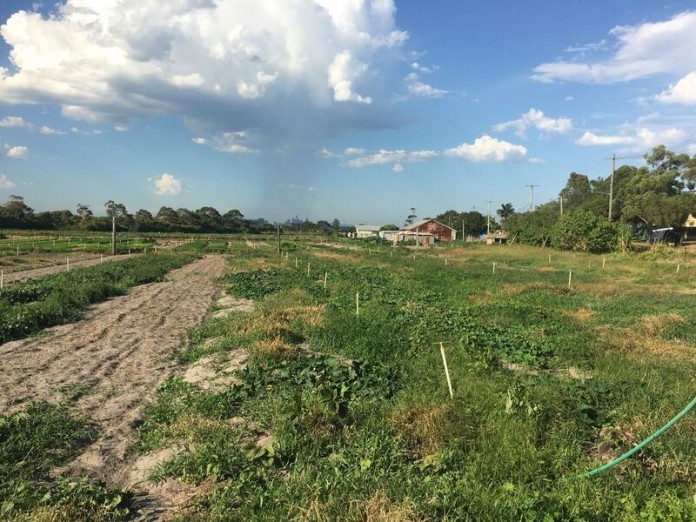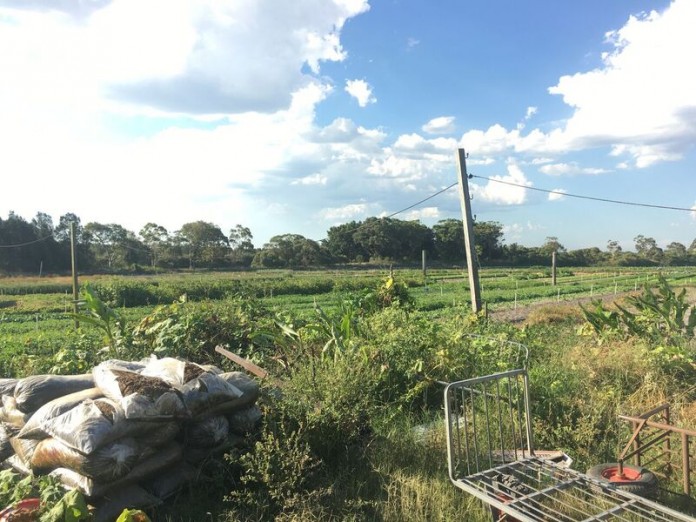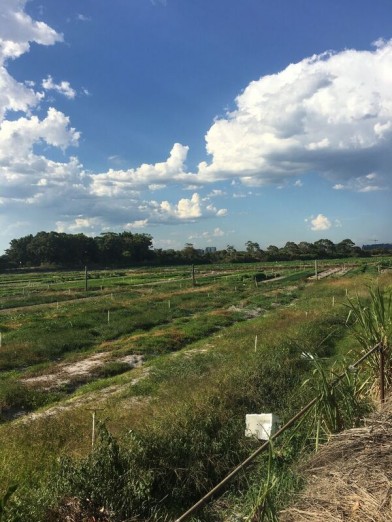The success of the proposal also appears to rely upon the alienation of an area of the Arncliffe Market Gardens for private ‘golfing’ interests. No justification is provided regarding why an area of government-owned, heritage listed land should be provided to ensure the success of a private commercial operation (whether considered directly in relation to the operability of the golf club or indirectly in relation to the removal of the golf club from their present lands).
While this may suit the ultimate owner of the land (which is the NSW Government), the lessees of the land, who actually operate the market gardens, are totally opposed to the reduction in their leasehold area and the potential threat to the viability of their market gardens. In this context, the landowner’s willing acceptance of this excision of land from the Market Gardens would appear, on face value, to be in flagrant contravention of their legal obligations under the Heritage Act.
For these reasons the excision of land from the Market Gardens must be rejected. It would clearly be an adverse impact upon the history, operation and viability of the market gardens.
If this particular section along the eastern side of the market gardens is claimed to be environmentally degraded and currently unusable, then that is prima facie evidence that the landowner is in breach of their Heritage Act obligations. Specifically in relation to the State-Owned Heritage Management Principles, the landowner has failed to maintain the market gardens and their operability.
This breach should not be concealed within what is otherwise a neighbouring development proposal that has no good reason to affect, much less involve, this State Heritage Register listed land.
Fundamentally, the proposed redevelopment of the land currently occupied by Kogarah Golf Club represents the redevelopment of public-owned land (which is currently leased to a private club) for private profit. This then results in a loss of approximately 50 hectares of land to the south which is currently available for general public recreation.
This deplorable result depends upon, amongst other things (including loss of wetlands and environmental open space), the removal of part of the Arncliffe Market Gardens, which were heritage-listed so as to protect them for future generations.
It is remarkable that, after more than 15 years, this project could be still alive. No amount of promotion will correct its fundamental flaws. The proposal should be abandoned immediately in favour of significant levels of investment in environmental management and recreational open-space.
The success of the proposal also appears to rely upon the alienation of an area of the Arncliffe Market Gardens for private ‘golfing’ interests. No justification is provided regarding why an area of government-owned, heritage listed land should be provided to ensure the success of a private commercial operation (whether considered directly in relation to the operability of the golf club or indirectly in relation to the removal of the golf club from their present lands).
While this may suit the ultimate owner of the land (which is the NSW Government), the lessees of the land, who actually operate the market gardens, are totally opposed to the reduction in their leasehold area and the potential threat to the viability of their market gardens. In this context, the landowner’s willing acceptance of this excision of land from the Market Gardens would appear, on face value, to be in flagrant contravention of their legal obligations under the Heritage Act.
For these reasons the excision of land from the Market Gardens must be rejected. It would clearly be an adverse impact upon the history, operation and viability of the market gardens.
If this particular section along the eastern side of the market gardens is claimed to be environmentally degraded and currently unusable, then that is prima facie evidence that the landowner is in breach of their Heritage Act obligations. Specifically in relation to the State-Owned Heritage Management Principles, the landowner has failed to maintain the market gardens and their operability.
This breach should not be concealed within what is otherwise a neighbouring development proposal that has no good reason to affect, much less involve, this State Heritage Register listed land.
Fundamentally, the proposed redevelopment of the land currently occupied by Kogarah Golf Club represents the redevelopment of public-owned land (which is currently leased to a private club) for private profit. This then results in a loss of approximately 50 hectares of land to the south which is currently available for general public recreation.
This deplorable result depends upon, amongst other things (including loss of wetlands and environmental open space), the removal of part of the Arncliffe Market Gardens, which were heritage-listed so as to protect them for future generations.
It is remarkable that, after more than 15 years, this project could be still alive. No amount of promotion will correct its fundamental flaws. The proposal should be abandoned immediately in favour of significant levels of investment in environmental management and recreational open-space.







